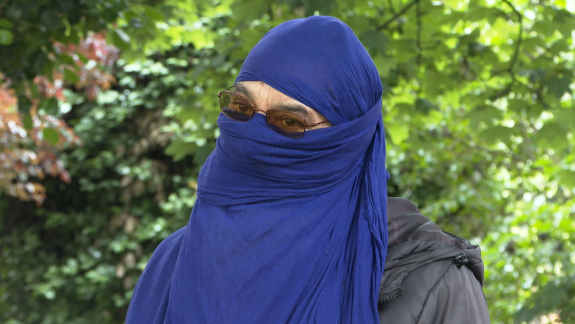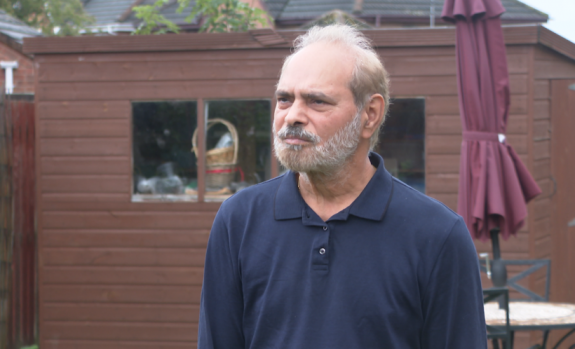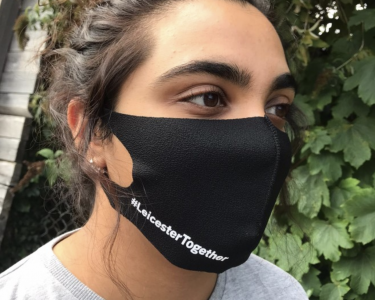In the wake of revelations about the exploitation of illegal factory workers in Leicester, we spoke to a former worker who left his job after concerns for his own wellbeing.
Speaking to our team, Kushal Kumar, which is a false name created to protect his identity, said: “We would work from morning until night, with hardly any breaks.” Kushal got his job at a factory in Leicester that makes t-shirts and sportswear. He informed us that, as he had done, some of the other workers in the factory had arrived in the UK from the Indian subcontinent and never returned home when their visas ran out.

Because of this, Kushal claims that this made himself and others easy targets for exploitation from factory owners.
When Kushal started his job, he was being paid a measly £3 an hour, far below even half of the national minimum wage of £8.72. After 3 months, they increased his pay by 50p an hour.
The people working in these factories sadly feel that they have few other options. Most are working illegally and so, owners take advantage of the fact that these illegal workers would wish to retain a low profile and not risk getting into trouble with the authorities.
Kushal bravely approached his boss and asked about the low pay. He was met with a matter-of-fact response that these factories were not making enough profit to pay their workers properly and that he and the other workers were “free to leave” if they didn’t like it. This was also followed by the remark that no other factories would take them in as they are the only ones with plenty of work to offer. The choice between no money and being severely underpaid is unfortunately an easy one to make.
We tried to get in touch with the factory owner for comment on this but were unable to make contact with them.
The big question here is how on earth is this allowed to happen in our western, modern society? We hear talk of sweatshops and factories similar to this in places such as China and even India itself. But we have always been led to believe that we live in a fair, and free United Kingdom.
When asked about what the Leicester Council can do about this, we were met with a concerning response.
Deputy Mayor Adam Clarke, who has taken it upon himself to work on this situation had this to say: “The council doesn’t have the power. In 2017 there was a select committee review of human rights in these places. One of the recommendations was to give local authorities the powers but unfortunately, the government at the time decided not to give us those powers.”

So it appears that, whilst the local council should be responsible for dealing with issues in their own constituency, the government itself has held back on bestowing the legal authority for local councils to deal with these sorts of issues. This oversight has prevented swift action from being taken to eradicate these illegal operations.
What is it then, that we need to be able to root out this problem?
Cllr. Clarke had a suggestion for this: “What we need is a single authority, a single labour market agency working on the ground with vitality and visibility, to enforce any practices that are exploitative.”
Something else that is cause for concern is that we now know that many of these factories, if not all of them, remained open during the coronavirus lockdown. On top of this, none of these workplaces utilised the proper PPE or protocols set out by the UK government.
Kushal said: “There was no social distancing of 2 meters at all. During the first lockdown, the factory remained open 7 days a week. There was no hand wash, no anti-bacterial gel, no masks.” For these reasons, Kushal left his job, as he was now concerned for his safety.
There is now the concern that with these lack of closures and safety precautions from these factories, that this could have been a cause of the covid-19 spike and subsequent lockdown of the city. Whether this is the case or not is still up for debate.
Deputy Mayor Piara Singh Clair said: “Up until recently, the government has given us no figures as to where the outbreak would be. They haven’t given us information about what postcodes could be affected, and so we have not been aware of any sort of complaint that the knitwear industry may have caused this virus to be in Leicester.”

Supporting these claims, Cllr Clarke said: “We are told by Public Health England that there is no data to suggest that there is no causal link between Covid-19 and the continuation of activity within industrial settings across the city, whether that be in textiles, or food, or anywhere else. So, the evidence that is being given to the city, suggests that there isn’t any reason for a causal link. If that evidence exists, we need Public Health England and the government to provide that to the local authorities as soon as possible so we can do what we can to act on that data.”
There appears to be no concrete answer to solving the issue of these illegal factories as of yet. The government and the local council are in a back-and-forth, blaming the other for the failures in this city, be it the continuation of illegal workers, or the apparent spike of coronavirus. However, it doesn’t seem like this issue will be going away anytime soon.
Watch the interviews here
By Sam Ellison






